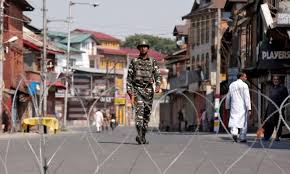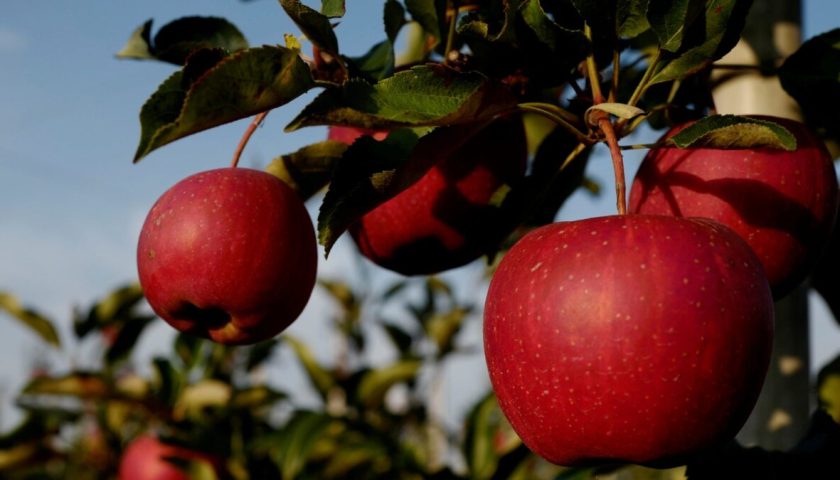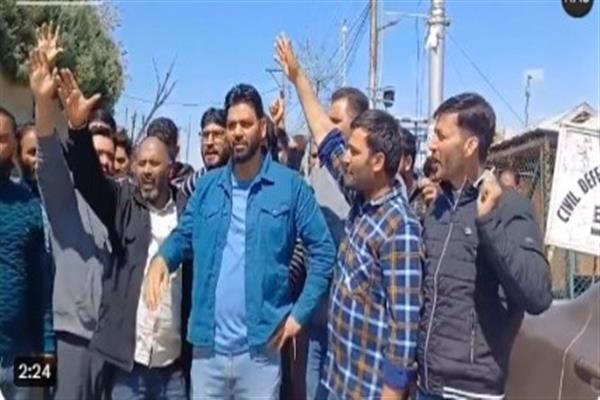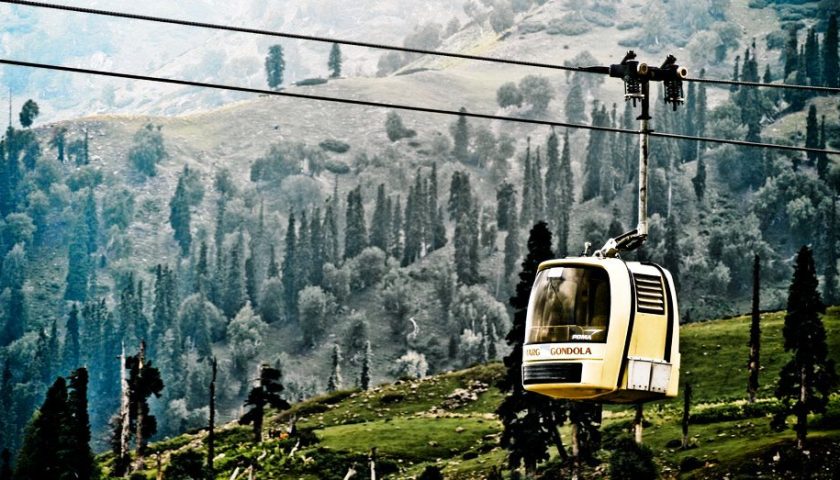An eerie calm, spools of concertina wire, forces personnel in riot-gear dotting the deserted streets and traumatised faces of young and old: This is the most simplified description of Srinagar’s Downtown—once a bustling commercial hub—by its residents braving the brunt of frequent restrictions imposed by the forces there.
According to residents of Downtown areas, the frequent imposition of curfews and disallowing of congregational Friday prayers at Jamia Masjid have taken a serious toll on people of all ages and professions.
The worst-hit, the residents say, are once-bustling markets of Mahraj Gunj, Nowhatta, Gojwara, Hawal and Khanyar that have lost all sheen over the years.
“Imposition of curbs in Downtown is nothing new, but since the 2008 summer uprising, the successive governments have made it like a compulsory feature to stop mass gatherings and protests,” said a group of residents from Nowhatta.
According to official figures, Downtown areas remained under restrictions for 32 days this year while congregational Friday prayers were disallowed at Jamia 15 times during this period.
Fall of Business
Before 1990, the Downtown markets would witness business worth Rs 10 crore a day, according to local traders. This figure has marginally grown to Rs 25 crore given the market trends.
“Imagine Rs 10 crore business a day 28 years ago. This indicates that the business transactions today should have touched around Rs 100 crore a day,” said Shahr-e-Khass Traders’ Coordination Committee chairman Nazir Ahmed Shah.
He said given the frequent curbs in Downtown, especially since 2008, the shopkeepers have laid off most of their salesmen.
“So far our estimates suggest that in the past few years, more than 200 salesmen working at various shops in Downtown areas were asked to choose other ways of earning their livelihood due to downfall in businesses,” he said.
The curbs also resulted in loss of traditional businesses including copper, silver, papier mache, wood carving, dry fruit and carpet weaving etc due to resultant dip in sales.
The Downtown markets mainly include Maharaj Bazar, Zaina Kadal, Nowhatta, Jamia Masjid Market, Gojwara, Rajouri Kadal and Bohri Kadal where some 3000 shopkeepers are associated with various trades.
“But 80 per cent shopkeepers have become defaulters of various banks for not paying the interest amount on time due to poor business,” Shah said. “Downtown business is losing its charm and we are running on losses largely because of frequent restrictions.”
‘Religions Sentiments Hurt’
Since curbs are mostly imposed on Fridays to bar congregational payers at historic Jamia Masjid, the local residents say these restrictions were hurting the religious sentiments of people across Kashmir.
“Jamia Masjid is a religious and spiritual centre for people who come from far off places to offer Friday prayers here,” said a spokesman of Jamia’s Anjuman-e-Auqaf that looks after management of the Masjid affairs.
Kashmir’s chief cleric Mirwaiz Umar Farooq, who delivers Friday sermons at the grand Masjid, again chose twitter to vent his anger over barring of prayers at Jamia today, and wrote: “2nd consecutive Friday & 15th of the year when Friday prayers barred at #JamaMasjid. Strict curfew imposed, people made hostages in their own homes in #ShahreKhas. No peaceful expression of protest against atrocities and injustices allowed, No law in the land except the law of #State Might.”
Talking to Kashmir Post, Mirwaiz said that people of Downtown deserve all applauds as they continue to remain steadfast to the Kashmir struggle “despite bearing the brunt of oppression, restrictions and curfews.”
Children, Elderly Worst Victims
The children and elderly across Downtown areas are also suffering badly due to frequent curbs.
“The education of our children has suffered a lot due to restrictions. Forces don’t allow our kids to even play on roads, let alone go to schools on restriction days,” said Haji Nisar Ali, vice-president of Shahr-e-Khas Traders Coordination Committee.
He said his son missed two papers as he couldn’t attend his school due to recent curbs. “Besides, elderly people have developed serious health issues, mostly respiratory problems, due to firing of pepper and ‘pava’ shells by forces, especially during evening clashes,” he said.
Curbs Only Option With Us: Police
The Jammu and Kashmir police said it is not that every Friday there are curbs in Downtown but “yes, for every shutdown or protest call given by the Joint Resistance Leadership, imposing restrictions is a must.” “We would prefer to impose curbs for 10 days rather than see civilians getting killed in protests,” said additional director general of police (law and order/security) Munir Khan, when asked why frequent curbs were imposed in Downtown areas.






